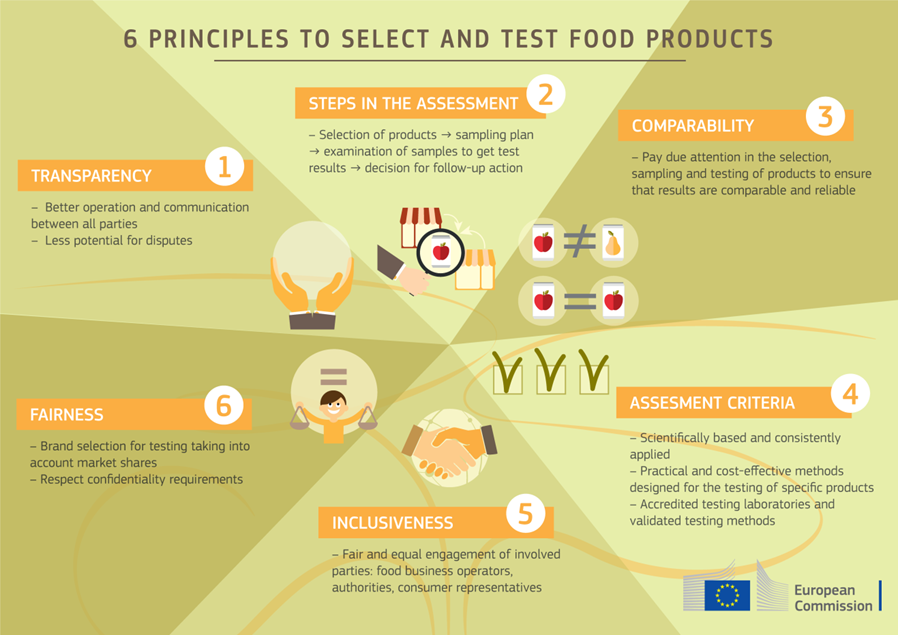Dual quality of food
EU-wide testing campaign
On 23 March 2021, the Commission published the results of the second part of its EU-wide testing campaign comparing food products marketed with the same branding.
The first part of this campaign, which compared the ingredients lists and front-of-pack information of almost 1,400 food products across 19 EU Member States for potential cases of dual quality was published on 24 June 2019.
The EU-wide testing campaign was based on a common testing methodology, developed by the Commission’s Joint Research Centre in close collaboration with all key stakeholders concerned, in order to gather scientific and comparable evidence regarding the scope and dimension of the issue in the EU’s Single Market. This methodology had the following objectives:

The Commission funded the development and implementation of the common testing methodology with EUR 1 million from the 2017 Consumer Programme as one important strand of action that the Commission initiated after President Juncker’s State of the Union speech in September 2017 to address the issue of dual quality, to which the Commission dedicated almost EUR 5 million from the EU budget. The results of the testing campaign help the competent authorities of the Member States to base their dual quality investigations on a sound evidence base.
Clarification of the relevant consumer protection legislation and capacity-building
In parallel, the Commission proposed to clarify the relevant consumer protection legislation as part of its 2018 New Deal for Consumers legislative initiative. This legislative amendment, which was adopted by the European Parliament and the Council on 28 November 2019, clarifies when “dual quality” practices mislead consumers and are contrary to the Unfair Commercial Practices Directive.
Besides the legislative clarification and the EU-wide comparison of quality related aspects of food products, the Commission continues to engage in further fact-finding and provides co-funding for the competent authorities of the Member States and NGOs:
| Action/Objective | State of play/outcome | EU-funding |
|---|---|---|
| Studies to enhance knowledge on the dual quality issue | ||
| JRC study on the economic rationale behind product differentiations and their impact on consumers | In January 2020, the JRC presented first results showing that consumers’ preferences are heterogeneous and differ across geographical regions and categories of products. By June 2022, it further aims at analysing consumers’ perception of differences in the design of the packaging of seemingly identical food products. It will also review how the products included in the above mentioned 2019 tests have evolved. | EUR 1,430,000 |
| Capacity-building projects | ||
| 2017 Action grants for consumer law enforcement authorities | Consumer protection (CPC) authorities from Bulgaria, Hungary, Lithuania and Slovakia received co-funding, i.e. to purchase testing equipment and perform tests. Completion of all projects is expected for mid-2021. | EUR circa 421,000 |
| Action grants for consumer organisations in partnership with public/private not-for-profit entities | Five projects bringing together various consumer organisations, public entities and NGOs from different Member States have received funding for activities that aim at strengthening the testing capacities and promoting the exchange of good practices among the involved actors. These projects are expected to be completed by the second half of 2021. | EUR circa 1,186,000 |
| Feasibility study to test certain categories of goods other than food and of creating a permanent monitoring centre | JRC is in the process of launching a new project, which aims at extending the common testing methodology of 2019 to cosmetics and detergents and to evaluate means to regularly collect comparative information. The project is expected to be completed in early 2022. |
EUR 900,000 |
